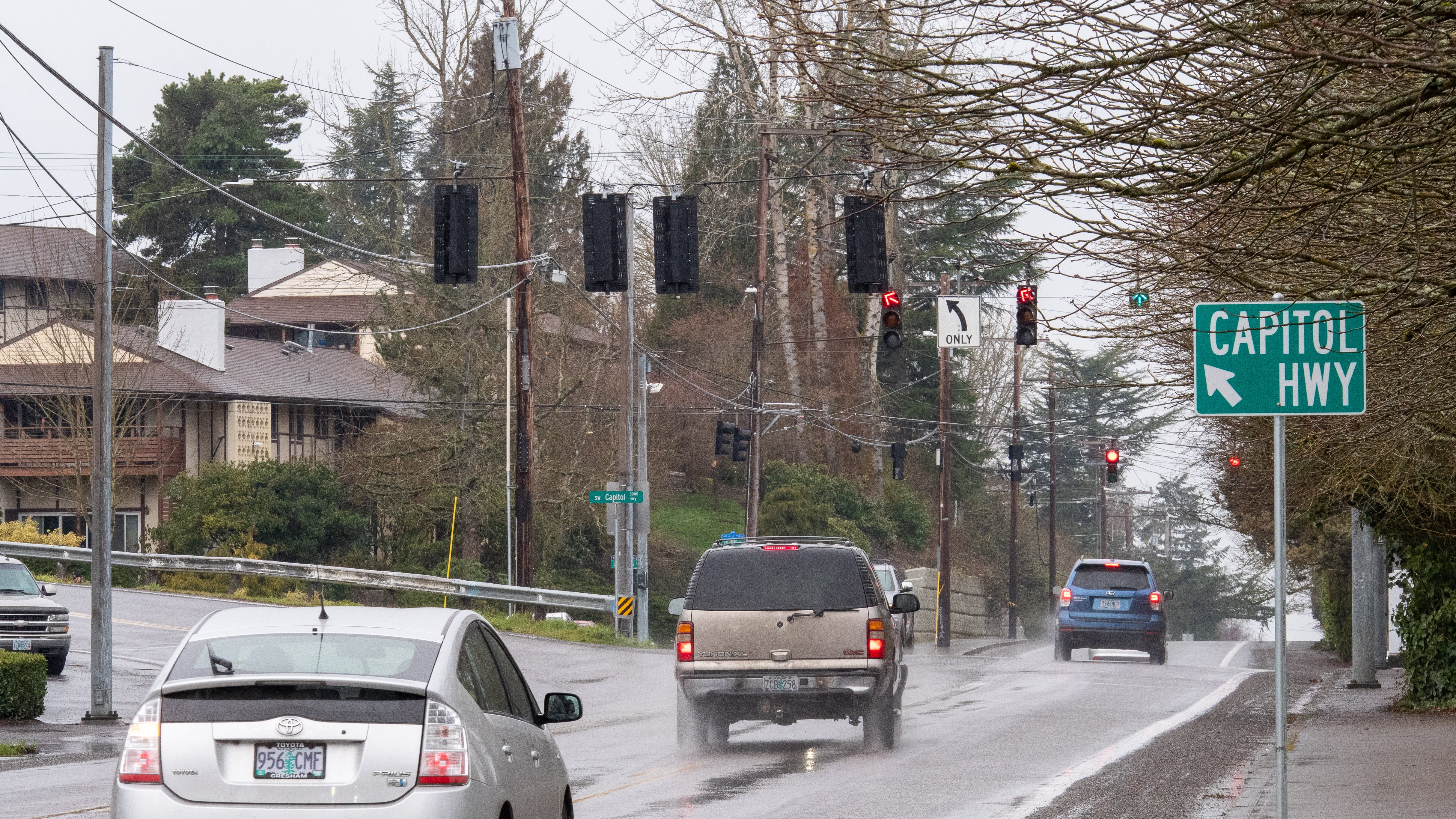The Portland Police Association is opposing a bill that could help reduce speeding but would take away work from police union members.
At issue: who reviews tickets from speed cameras.
Portland began using fixed speed cameras at high-crash intersections in 2016, and in a recent report to the Legislature, the Portland Bureau of Transportation said the devices were highly effective at reducing speeds. (Fixed speed cameras are mounted on utility poles and do not move, unlike mobile radar cameras in police vans, which are parked in variable locations.)
"The number of drivers speeding decreased significantly at every location where a speed safety camera system was installed," the report says. "The reduction in speeding has remained low over time."

That matters because the risk of injury or death rises markedly as a vehicle's speed increases. Research shows, for example, that "a pedestrian struck by a person driving 40 mph is eight times more likely to die than a pedestrian struck at 20 mph."
And, at higher speeds, vehicles take longer to stop, so more crashes occur.
Speeding is a big issue in Portland, which last year recorded 54 traffic fatalities, the highest total since 1996. (PBOT says it does not yet have sufficient crash data to evaluate the impact of the cameras on crashes, although federal researchers say, based on studies elsewhere, that "speed cameras can reduce crashes substantially.")
Despite the cameras' effectiveness, Portland has installed them slowly, citing procurement and contract challenges—and a labor bottleneck.
State law requires that each ticket generated by a speed camera be reviewed by a sworn police officer. In 2019, the Portland Police Bureau told WW it didn't have sufficient staff to keep up with the tickets. PPB staffing has plummeted since then.
Meanwhile, the number of speed camera tickets mailed to Portland motorists rose last year to 38,502, an increase of 23% from 2019. It costs about $91,000 a year for a police officer to review the speed camera tickets, according to PBOT's report to the Legislature.
Related: Speed Cameras Save Lives. So Why Does Portland Have Only Eight of Them?
The fix? House Bill 3357, which, as Bike Portland first reported, would allow civilian city employees rather than sworn police officers to review the tickets, freeing police to attend to more pressing matters. (Other cities, including Denver, already allow to civilians to review speed camera tickets.)
HB 3357, sponsored by state Rep. Jeff Reardon (D-East Portland), whose district sees a disproportionate number of traffic crashes and fatalities, provides that the civilian ticket reviewers would be trained.
"Duly authorized traffic enforcement agent means an individual who is appointed, duly sworn and trained by a law enforcement agency to review photographs and issue citations," the bill says.
But Michael Selvaggio, lobbyist for the Oregon Coalition of Police and Sheriffs, which represents the state's largest police unions, including the Portland Police Association, says ORCOPS will oppose HB 3357. (PPA president Brian Hunzeker is also president of the ORCOPS board.)
"This measure creates a new class of public officials authorized to issue citations who would be subject to none of the police officer standards and accountability measures the Legislature has advanced over the last few years," Selvaggio told WW in an email."That's going backwards."
What goes unstated: The new agents would not be members of the PPA, and the new classification would take away work from union members.
The bill gets its first public hearing March 18 at 8 am in front of the Joint Committee on Transportation.

